Hoteliers across the globe are repurposing hotel properties to emerge out of the crisis. This article discusses a few such instances.
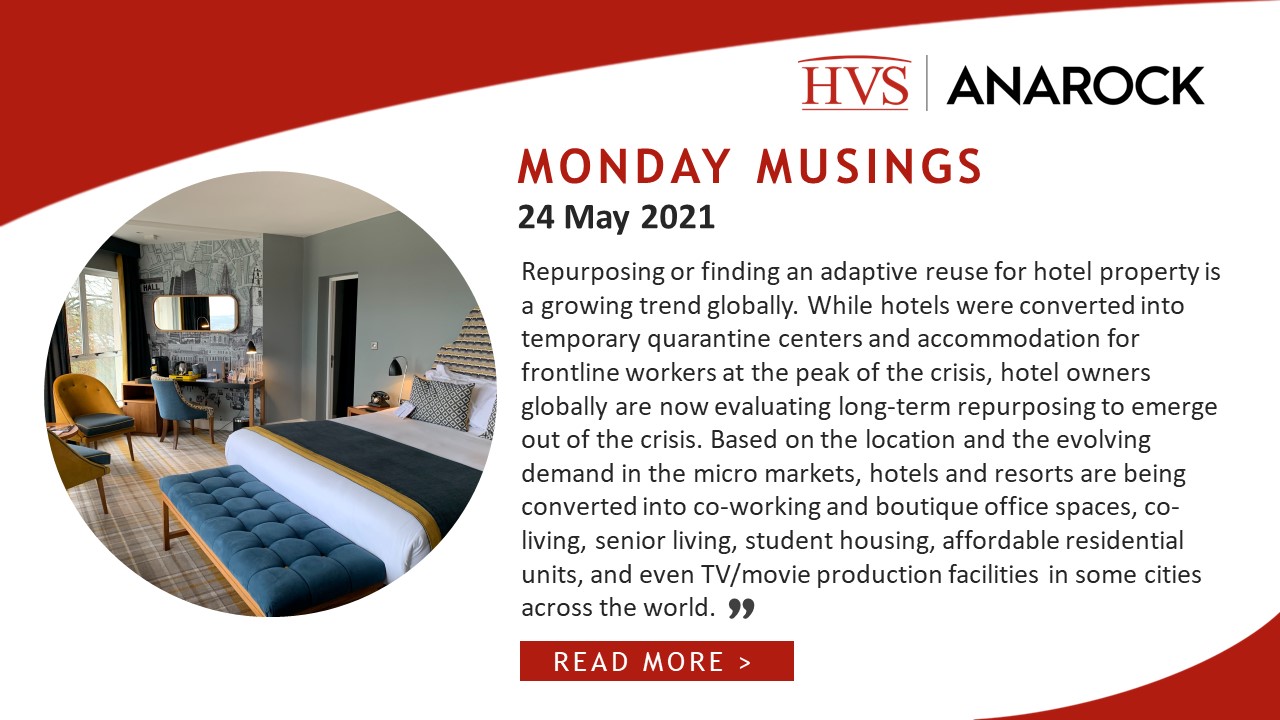
We have written thousands of articles about all aspects of hospitality, including valuations, investing, lending, operations, asset management, and much more.
Hoteliers across the globe are repurposing hotel properties to emerge out of the crisis. This article discusses a few such instances.
The COVID-19 pandemic has accelerated the technology and virtual reality scene in every industry, including travel and tourism. With border restrictions in place, many are not able to travel. Hence, tour companies have introduced online travel experiences to showcase a destination, culture, event, various classes and many more. Is virtual travel the new way to travel? Will virtual travel replace the need for physical travel altogether?
The largest vaccination drive is currently underway across the world and is helping in the revival of the global travel sector.
This article discusses some of the factors that have driven the growth of the vacation home rentals segment in India.
This article discusses some of the benefits of installing electric vehicle charging stations at hotels in India.
Adventure tourism is still evolving in India and has considerable growth potential. This article discusses some of the factors that can help in the growth of this niche segment in the country.
Countries across the globe are now planning to reopen inbound tourism. This article highlights some of the measures that governments are taking to attract foreign tourists to their respective countries.
In Focus: Singapore 2021 provides an overview of Singapore’s tourism landscape and hotel market performance, infrastructure developments, hotel transactions and investment in 2020, covid-19 situation, outlook and crisis management.
COVID-19 is an inflection point for medical tourism in India. Initiatives taken by the government in the last one year, coupled with the country's reputation of being one of the most affordable medical tourism destinations globally, will go a long way in making India a global medical tourism hub going forward.
With changing demand dynamics, hoteliers are once again focusing on the upscale segment, especially while increasing their footprint in the leisure segment. Read on to know more.
We have written thousands of articles about all aspects of hospitality, including valuations, investing, lending, operations, asset management, and much more.

Hoteliers across the globe are repurposing hotel properties to emerge out of the crisis. This article discusses a few such instances.
The COVID-19 pandemic has accelerated the technology and virtual reality scene in every industry, including travel and tourism. With border restrictions in place, many are not able to travel. Hence, tour companies have introduced online travel experiences to showcase a destination, culture, event, various classes and many more. Is virtual travel the new way to travel? Will virtual travel replace the need for physical travel altogether?
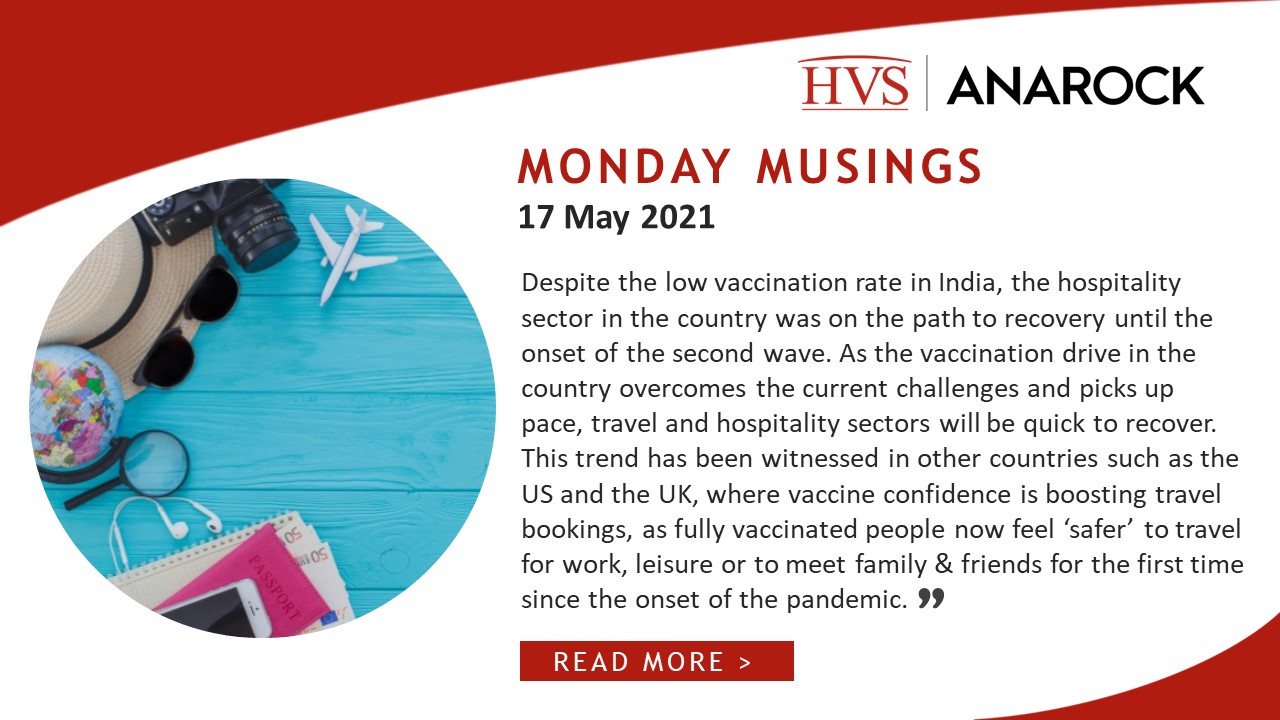
The largest vaccination drive is currently underway across the world and is helping in the revival of the global travel sector.
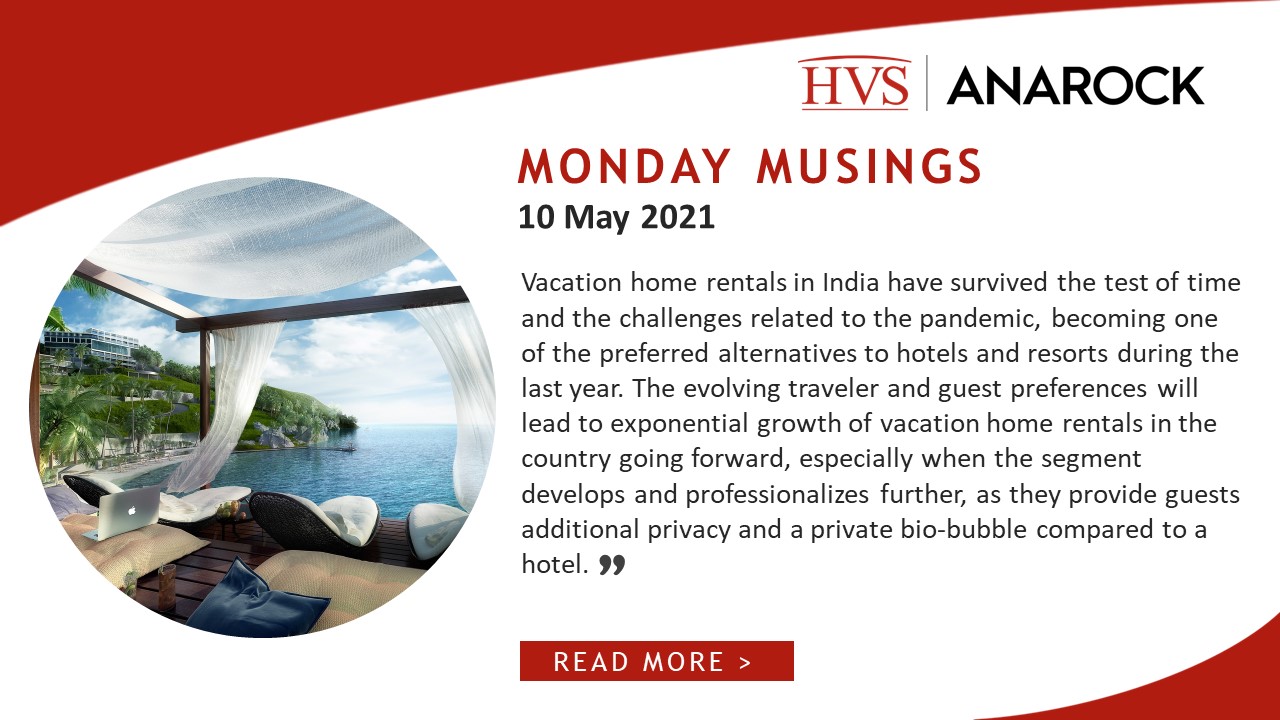
This article discusses some of the factors that have driven the growth of the vacation home rentals segment in India.
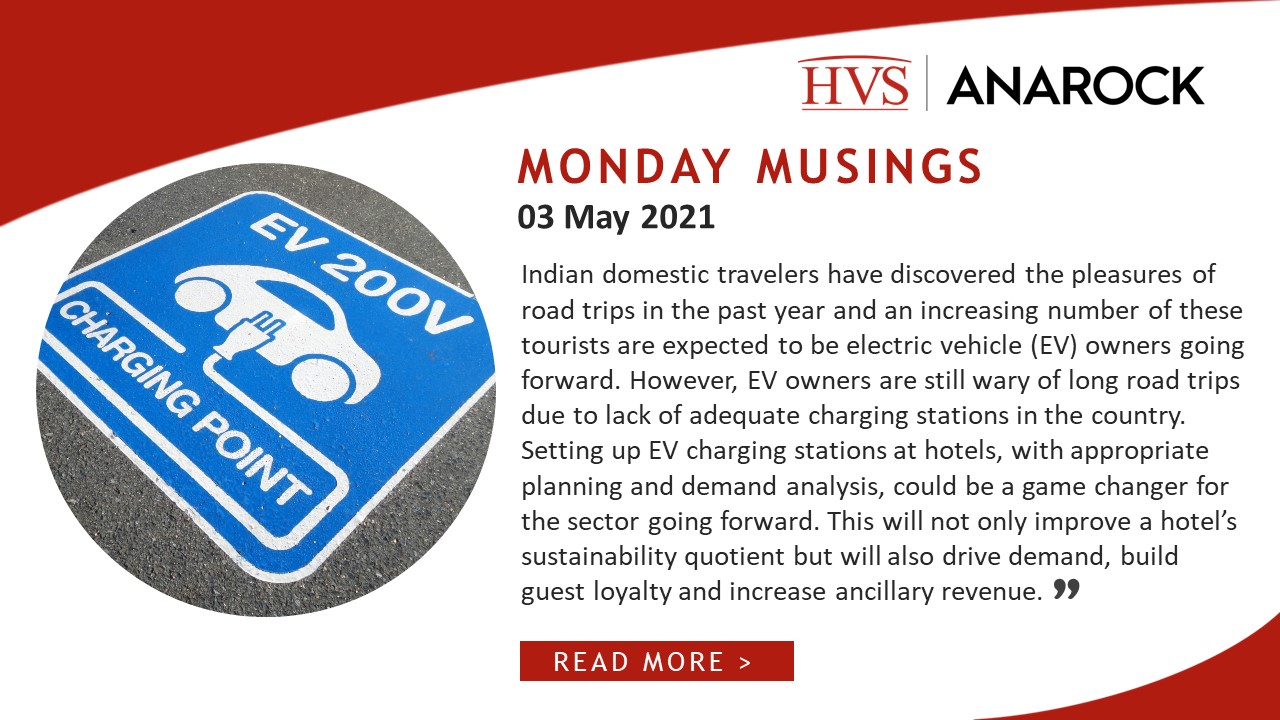
This article discusses some of the benefits of installing electric vehicle charging stations at hotels in India.
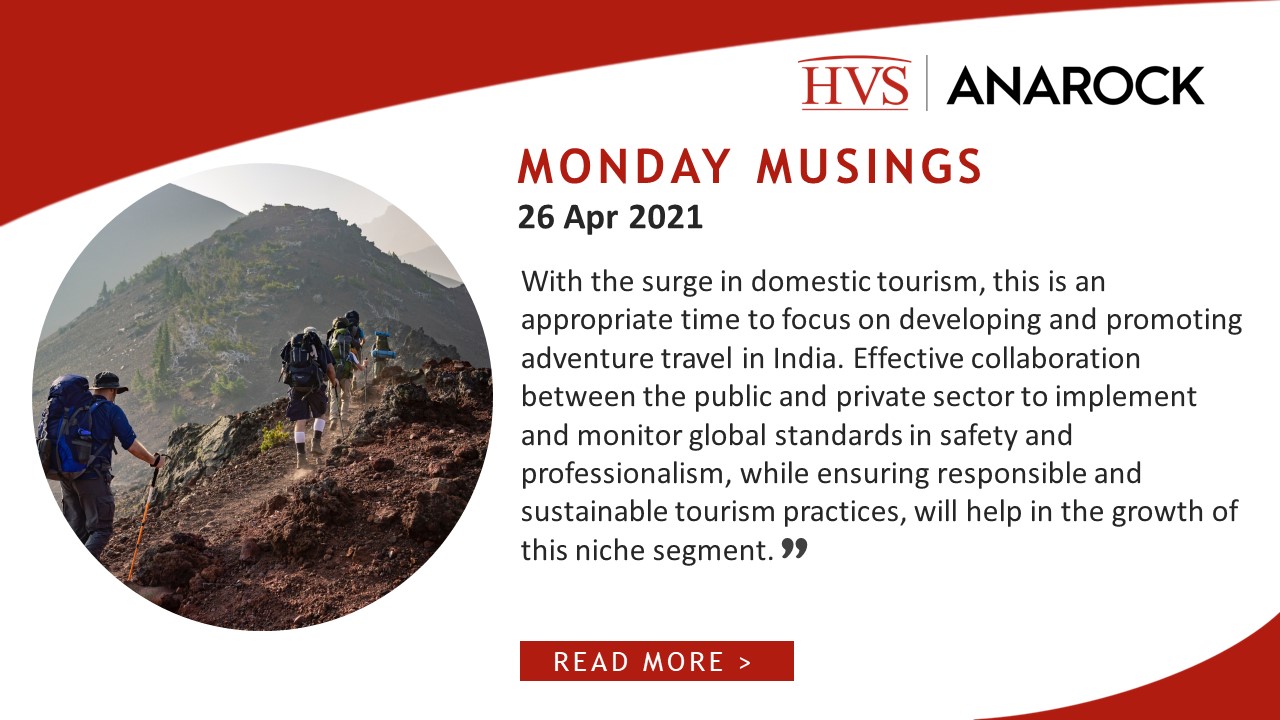
Adventure tourism is still evolving in India and has considerable growth potential. This article discusses some of the factors that can help in the growth of this niche segment in the country.
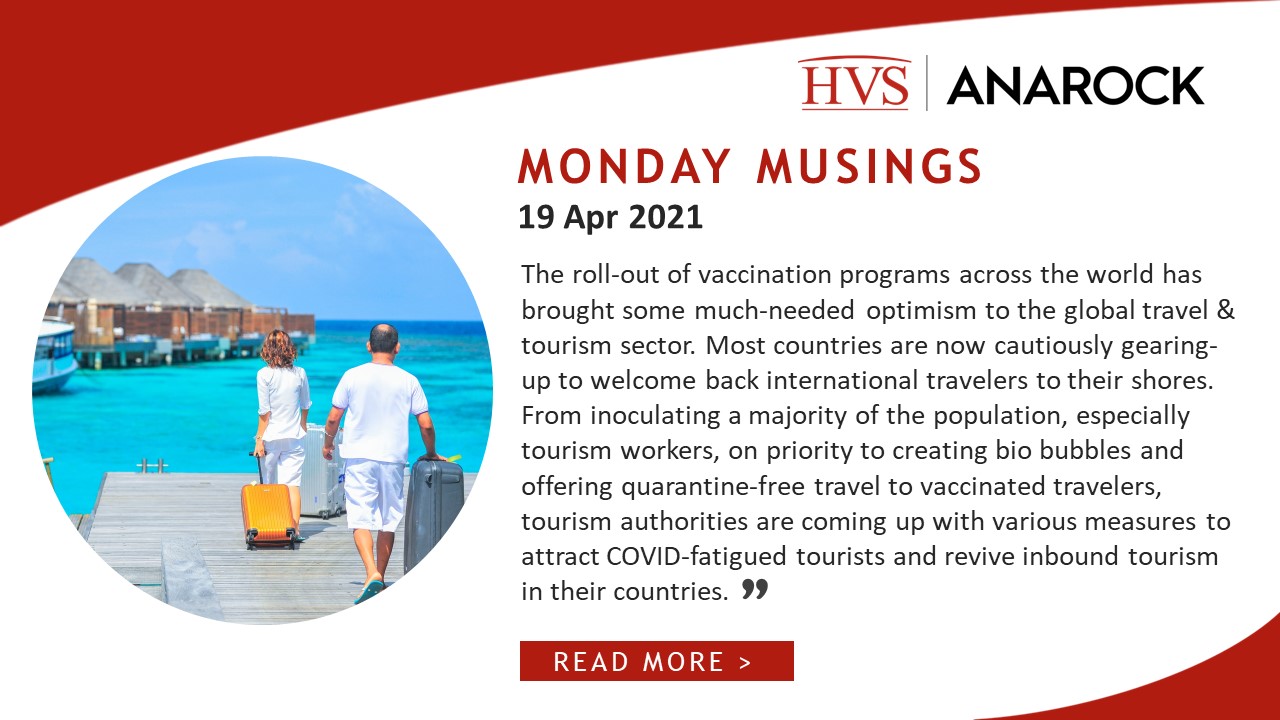
Countries across the globe are now planning to reopen inbound tourism. This article highlights some of the measures that governments are taking to attract foreign tourists to their respective countries.
In Focus: Singapore 2021 provides an overview of Singapore’s tourism landscape and hotel market performance, infrastructure developments, hotel transactions and investment in 2020, covid-19 situation, outlook and crisis management.
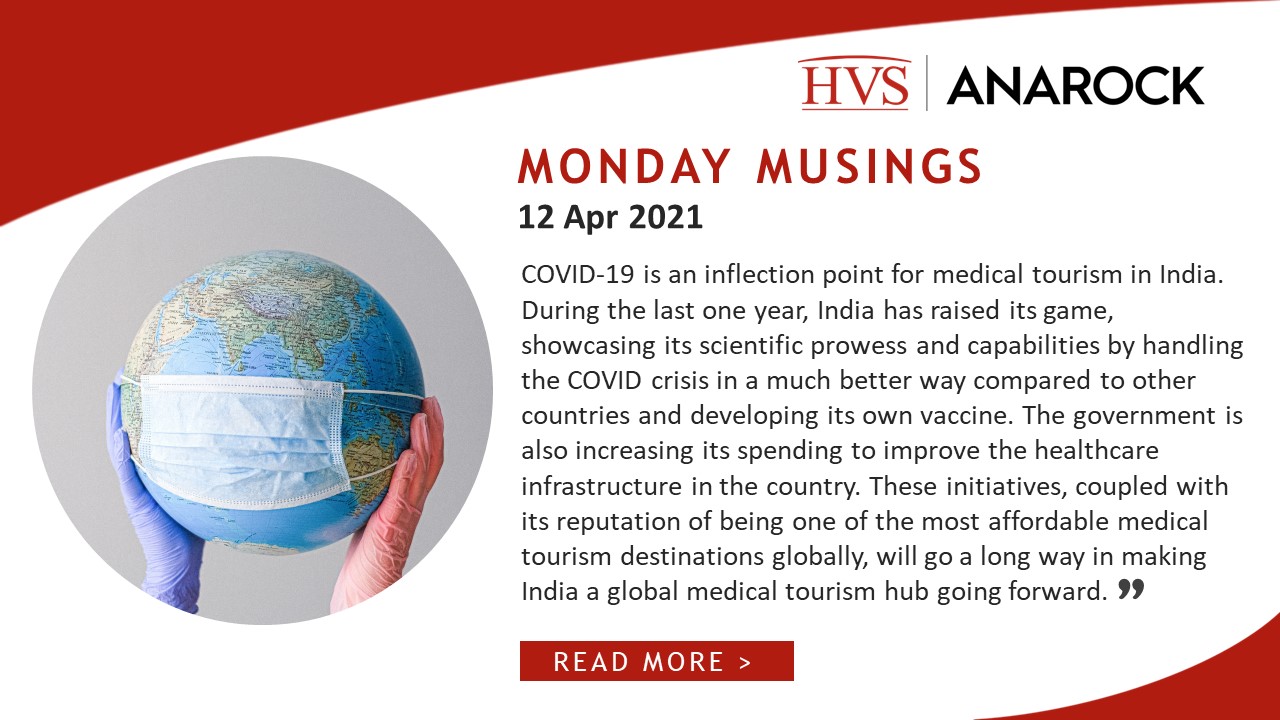
COVID-19 is an inflection point for medical tourism in India. Initiatives taken by the government in the last one year, coupled with the country's reputation of being one of the most affordable medical tourism destinations globally, will go a long way in making India a global medical tourism hub going forward.
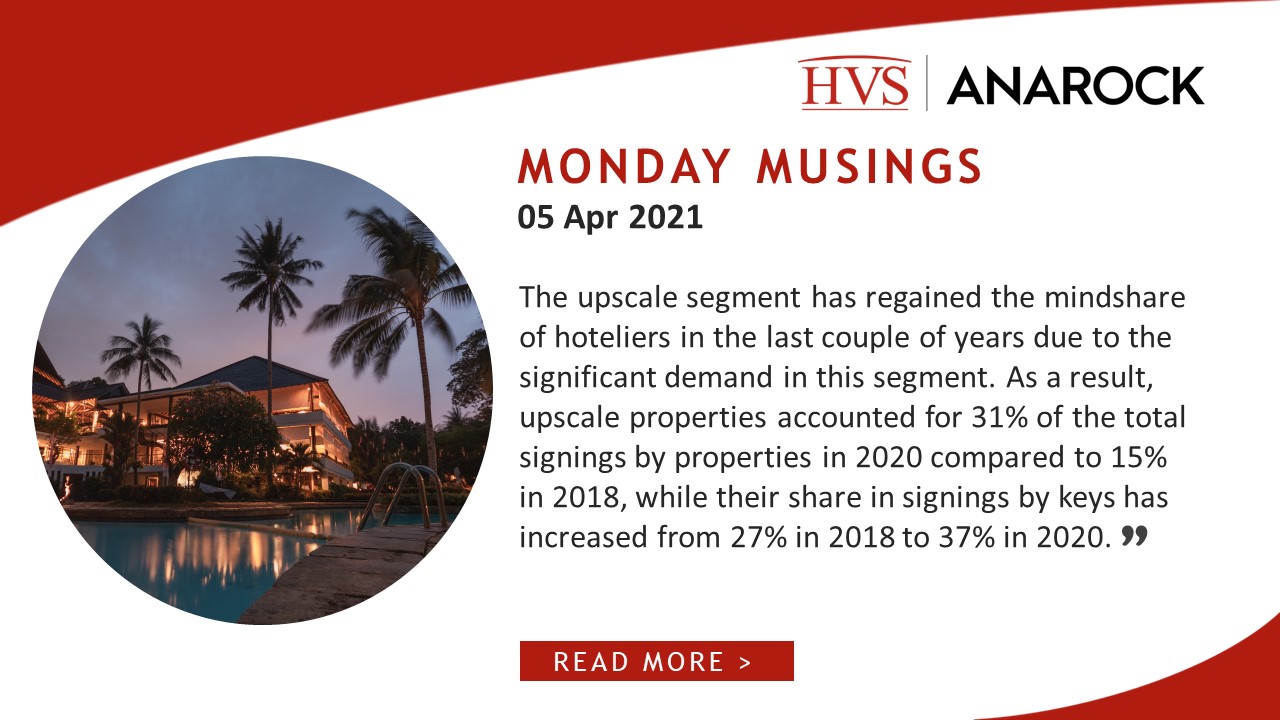
With changing demand dynamics, hoteliers are once again focusing on the upscale segment, especially while increasing their footprint in the leisure segment. Read on to know more.

Robust demand in urban centers continues to drive Canadian hotel values despite high interest rate environment.